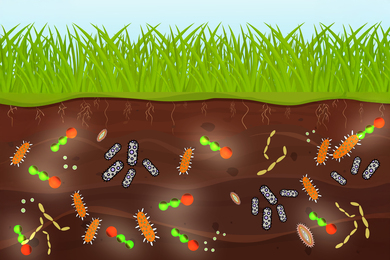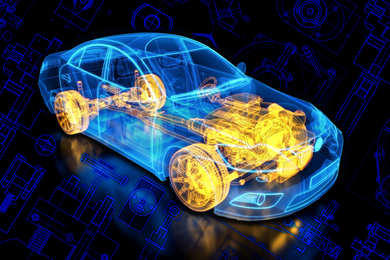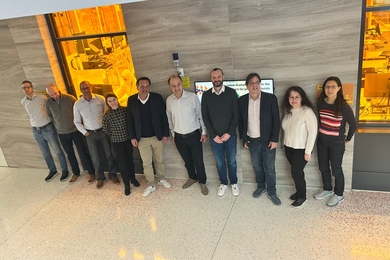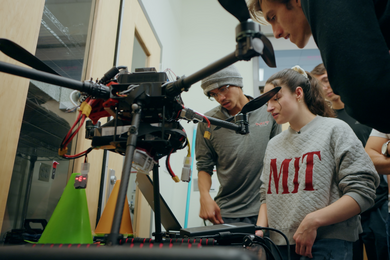Winning the $400,000 Kyoto Prize for advanced technology won't change former longtime MIT Professor W. David Kingery's life very much.
"My like for sailing and my wife Lily's like for sportcars and our joint efforts to rejuvenate an 18th-century cottage in Rhode Island where we spend summers will all receive a boost," said Professor Kingery (SB 1948), who was on the MIT faculty from 1951-88 and is now at the University of Arizona.
Dr. Kingery was cited by the Kyoto Prize Screening Organization this spring as a pioneer in establishing ceramic technology as materials science and technology "by theoretically systemizing the technology, which included his own research results." He has been called the father of modern ceramics.
In announcing the award, the Inamori Foundation, which sponsors the annual awards, noted that before Professor Kingery entered the field "ceramics was a technology that conventionally relied solely on empirical rules. Dr. Kingery thus contributed greatly to the development of this field today."
"I knew I'd been nominated, so it didn't come completely out of the blue," he said. "Naturally, I'm very pleased. It is the top international award in the field."
In 1960, Professor Kingery wrote the first edition of the field's seminal textbook Introduction to Ceramics, which has been translated into Chinese, Japanese and Russian, among other languages, and is still in print. His 200-plus scientific papers have had enormous impact on the course of ceramic science and technology through pioneering work in such areas as thermal properties, liquid phase sintering, oxygen ion conductors, defects and transport, and grain boundary phenomena. He is currently working on a textbook that explores the connection between anthropology and technology.
Professor Kingery did much of the groundbreaking research for which he was honored during his 37 years on the MIT faculty. He received the SB in chemistry from MIT in 1948 and the ScD in 1950.
He established the first graduate education and research program in physical ceramics at MIT in 1950 and had a profound influence on many students who entered the field. "He was my mentor, my thesis advisor and my sailing instructor," said Professor Yet-Ming Chiang of materials science and engineering, who began his career as a UROP student under Professor Kingery. Professors Chiang and Kingery are co-authors of the textbook Physical Ceramics.
Professor Chiang and other students also sailed in the Marion-to-Bermuda boat race with Professor Kingery, who was instrumental in establishing this biannual event in 1977. While at MIT, Professor Kingery sailed across the Atlantic for a sabbatical in France and across the Pacific to visit the site of Melville's Typee in the Marquesas and Tahiti in Polynesia. Since moving to Arizona at age 62, Professor Kingery has traded his yacht for horses and upgraded the Piper aircraft he flew to Arizona.
The American Ceramic Society established the W. David Kingery Prize in 1998 to be awarded annually for "distinguished lifelong achievements involving multidisciplinary and cross-cultural contributions to ceramic technology, science, education and art." The first recipient was Professor Kingery.
Dr. Kingery, a Regents' Professor and chair of the University of Arizona Program on Culture, Science, Technology and Society, will receive the Kyoto Prize at a ceremony in Japan in November. In addition to the cash award, Kyoto Prize winners receive a medal, a diploma, an audience with the emperor and empress of Japan, and give several honorary lectures in Japan.
Those who have won the prize while on the MIT faculty are Professors Claude E. Shannon (1984), Morris Cohen (1987), Noam A. Chomsky (1988) and Edward N. Lorenz (1991).
A version of this article appeared in the September 11, 1999 issue of MIT Tech Talk (Volume 44, Number 2).





